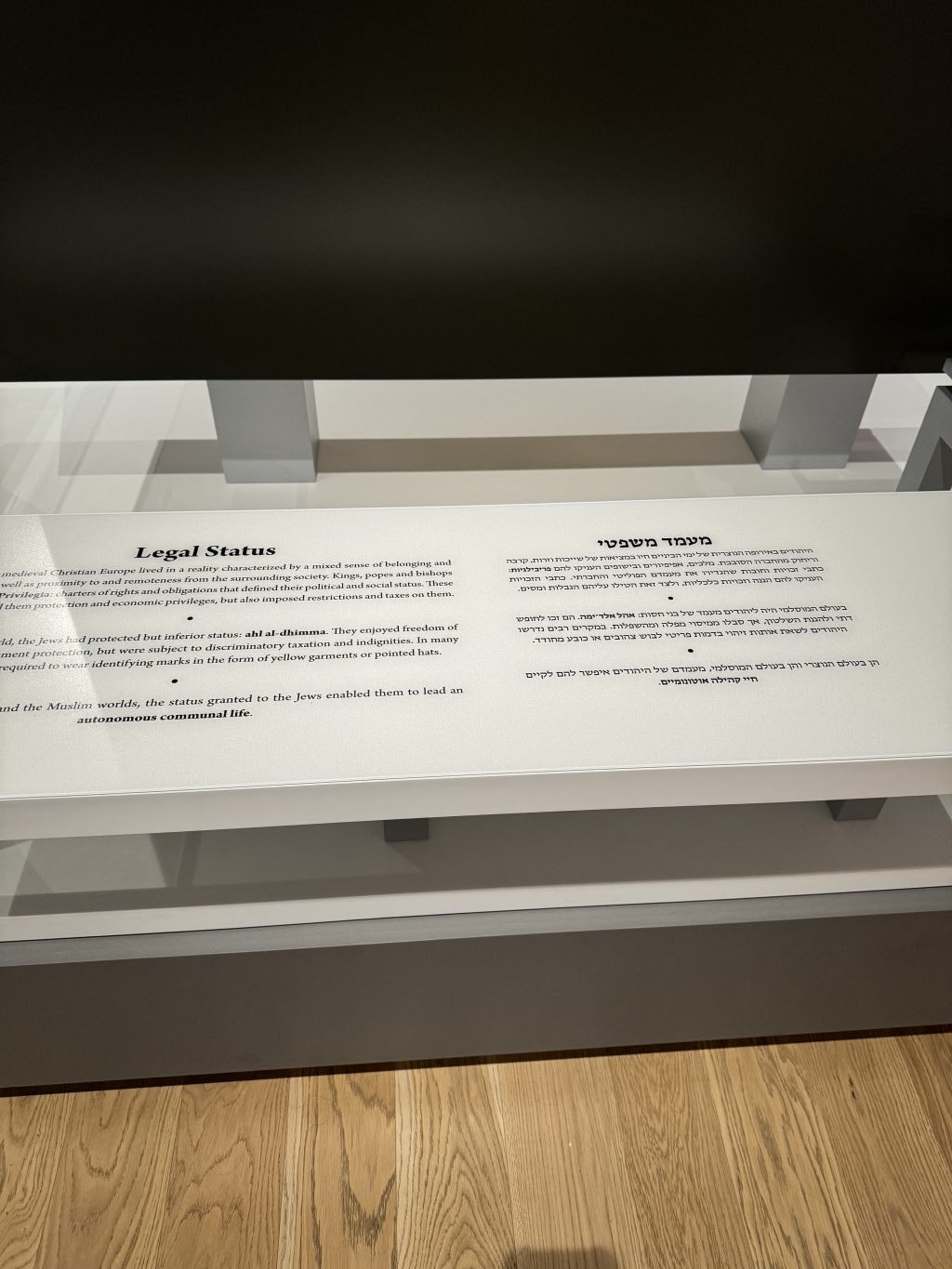Text Panel
The Jews in medieval Christian Europe lived in a reality characterized by a mixed sense of belonging
and alienation as well as proximity to and remoteness from the surrounding society.
Kings, popes and bishops granted them Privilegia: charters of rights and obligations that defined their political and social status.
These charters offered them protection and economic privileges, but also imposed restrictions and taxes on them.
In the Muslim world, the Jews had protected but inferior status: ahl al-dhimma.
They enjoyed freedom of religion and government protection, but were subject to discriminatory taxation and indignities.
In many cases, Jews were required to wear identifying marks in the form of yellow garments or pointed hats.
In both the Christian and the Muslim worlds, the status granted to the Jews enabled them to lead an autonomous communal life.

